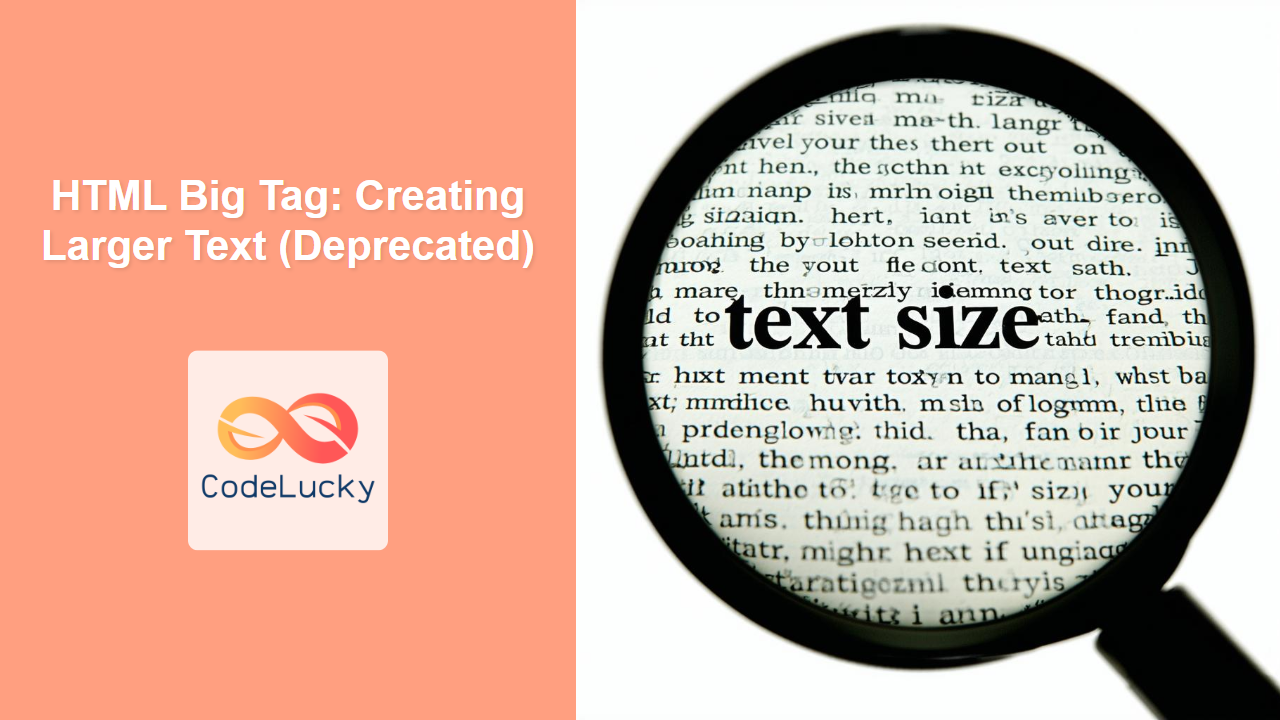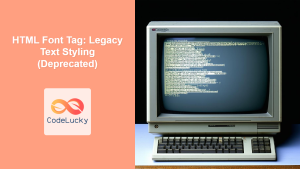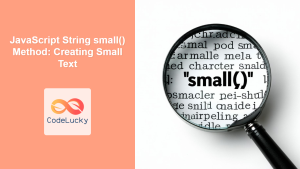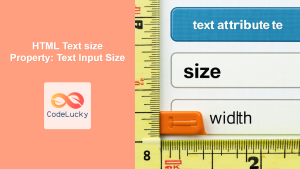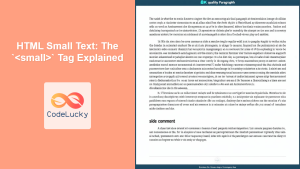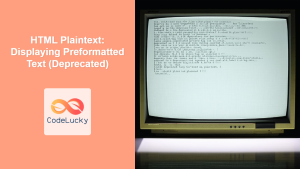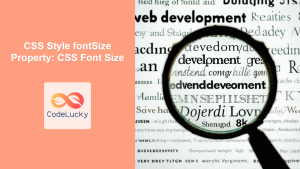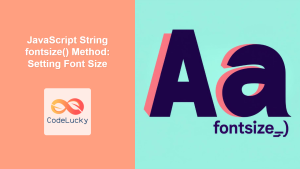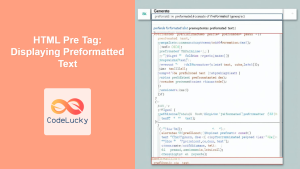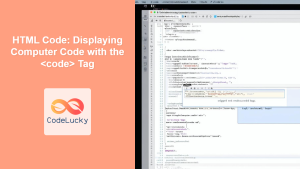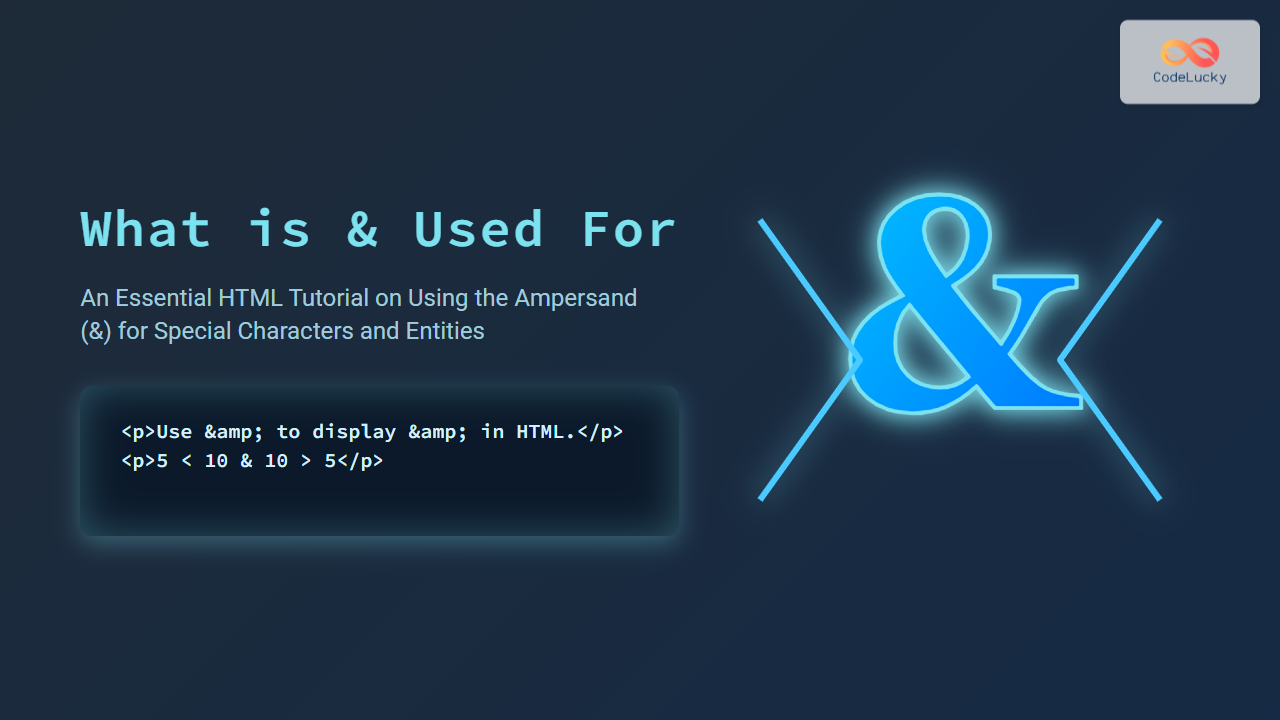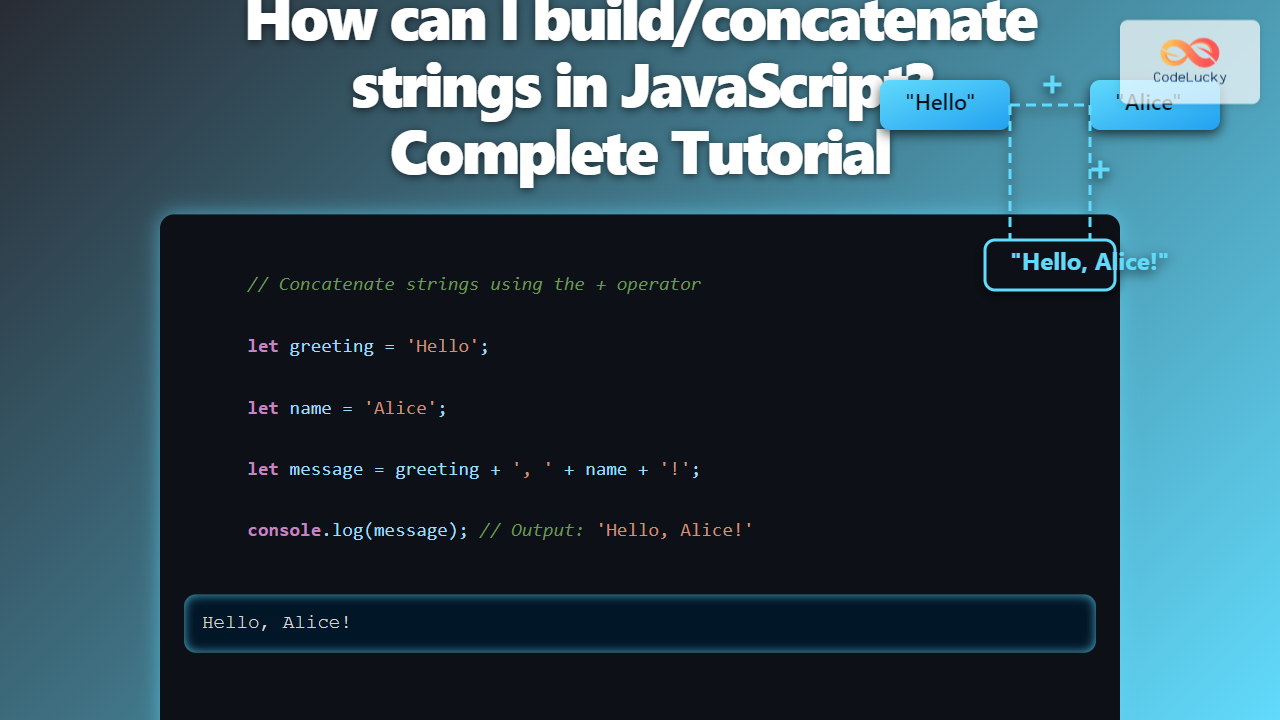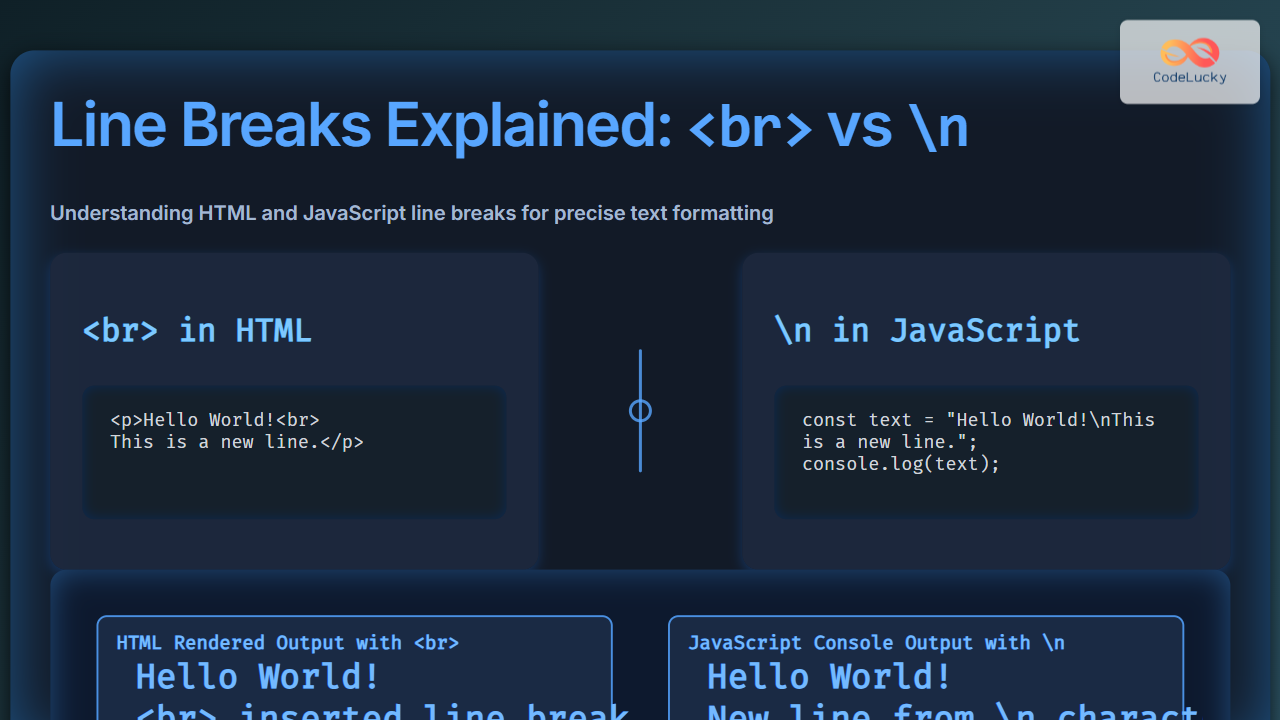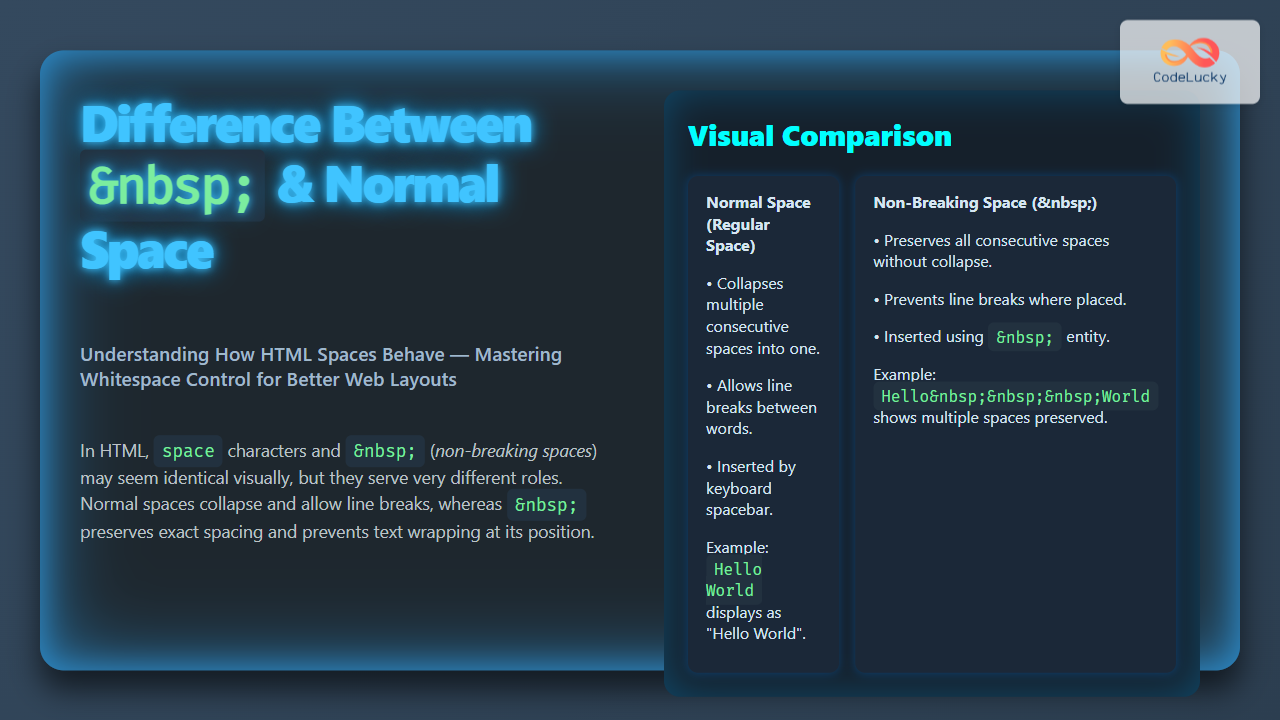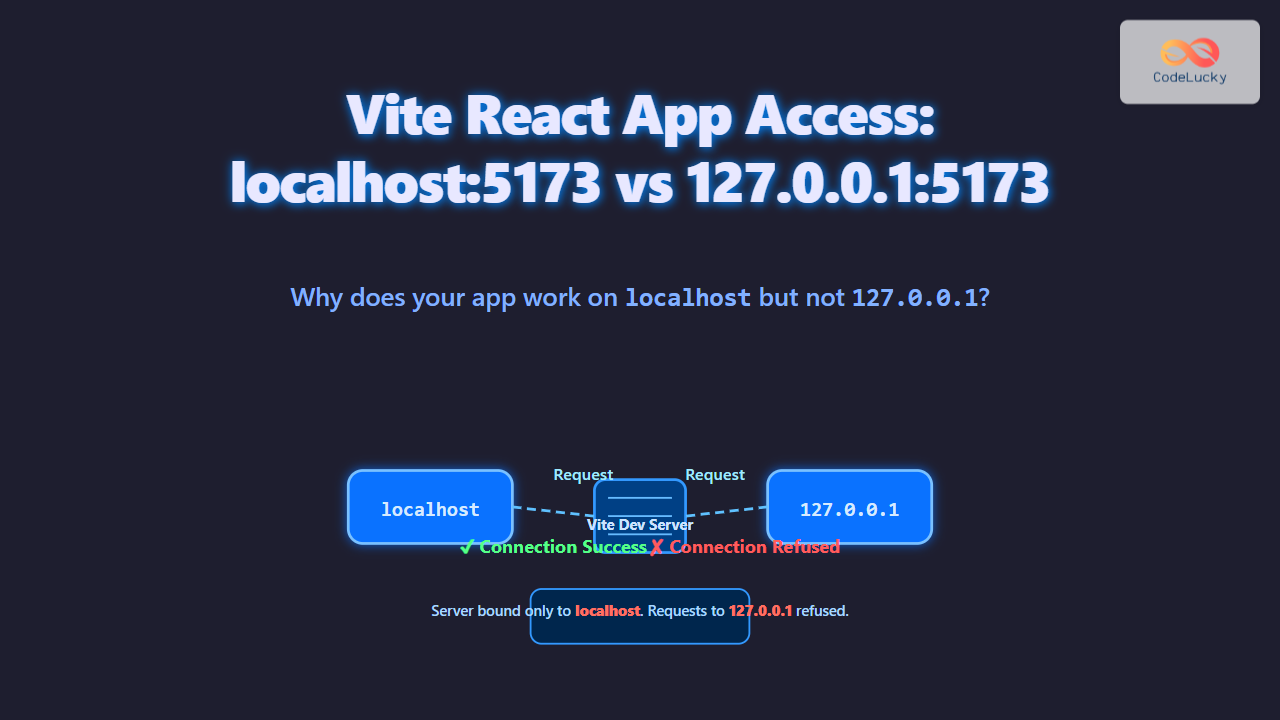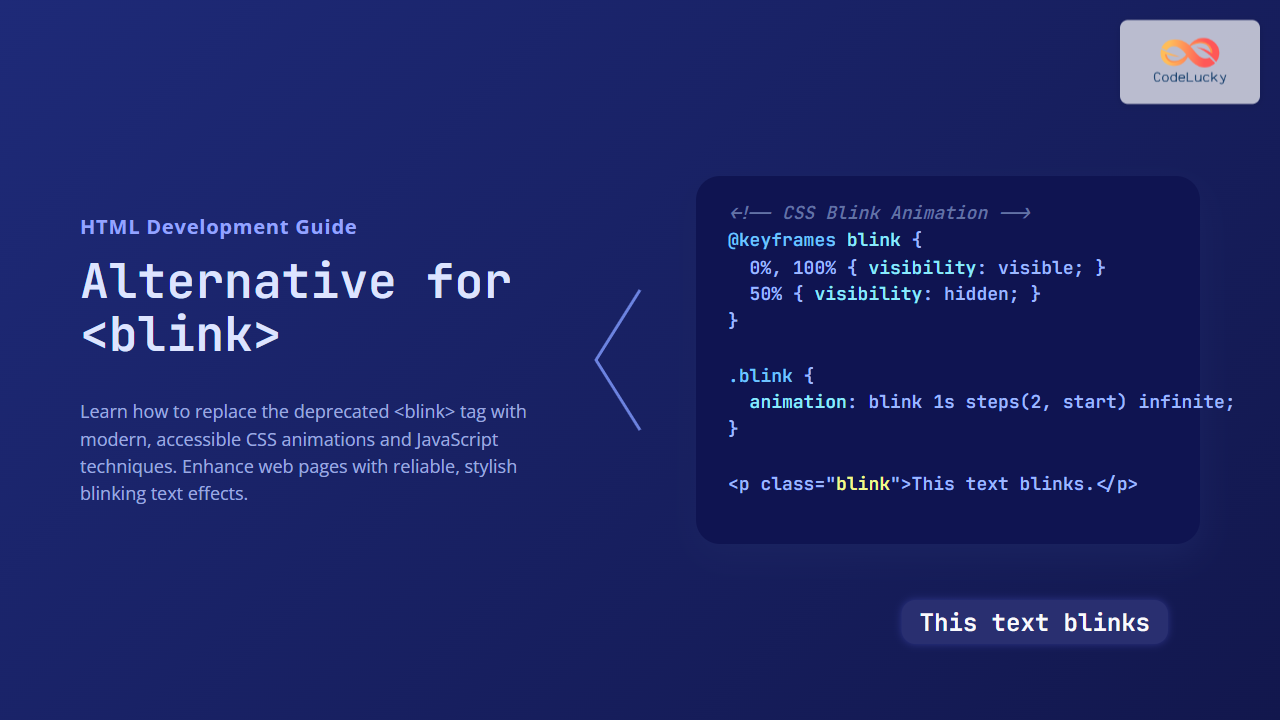HTML <big> Tag
The <big> tag was an HTML element used to render text one size larger than the surrounding text. It provided a quick way to increase text size without using CSS. However, the <big> tag is now considered obsolete and should not be used in modern HTML.
Syntax
<big>Text to be displayed larger</big>
Attributes
The <big> tag does not support any specific attributes. It relies on its inherent behavior of rendering text larger.
| Attribute | Value | Description |
|---|---|---|
| None | N/A | The <big> tag does not have any specific attributes. |
Example
<p>This is <big>larger text</big> within a paragraph.</p>
More Examples
While the example above shows the basic usage, let's demonstrate a more practical scenario. Since the <big> tag is deprecated and doesn't have significant use cases, it’s primarily used for understanding its legacy behavior.
<h1>Main Heading</h1>
<p>This is a <big>highlighted</big> word in a normal paragraph.</p>
<p>And this is another <big><big>bigger</big></big> highlighted text.</p>
In the above example, the word "highlighted" is made larger. Nesting big tags does make it look bigger, but it is not advisable to use them.
Browser Support
The <big> tag is supported by all major browsers, because it's an older tag. However, it's not recommended to use this tag due to its deprecation. Use CSS for better text-sizing practices.
| Browser | Support |
|---|---|
| Chrome | Yes |
| Edge | Yes |
| Firefox | Yes |
| Safari | Yes |
| Opera | Yes |
| Internet Explorer | Yes |
Notes and Tips
- Deprecation: The
<big>tag is deprecated in HTML5. This means it's no longer recommended for use, and browsers might eventually remove support for it. - CSS Instead: Use CSS
font-sizeproperty instead to achieve text sizing. - Avoid Mixing: Avoid mixing HTML and CSS formatting. Stick to CSS for all your text styling needs.
- Accessibility: Over-reliance on tags like
<big>can make it harder to manage text sizes on various devices, which is important for accessibility. Use CSS for consistent control.
Recommendation: Instead of using the <big> tag, use CSS styles for controlling text size.
Example using CSS:
<p>This is <span style="font-size: 1.2em;">larger text</span> within a paragraph.</p>
This CSS approach offers more flexibility and control over the presentation of your text. Using the em unit ensures the text scales properly with the user's preferred font settings.

